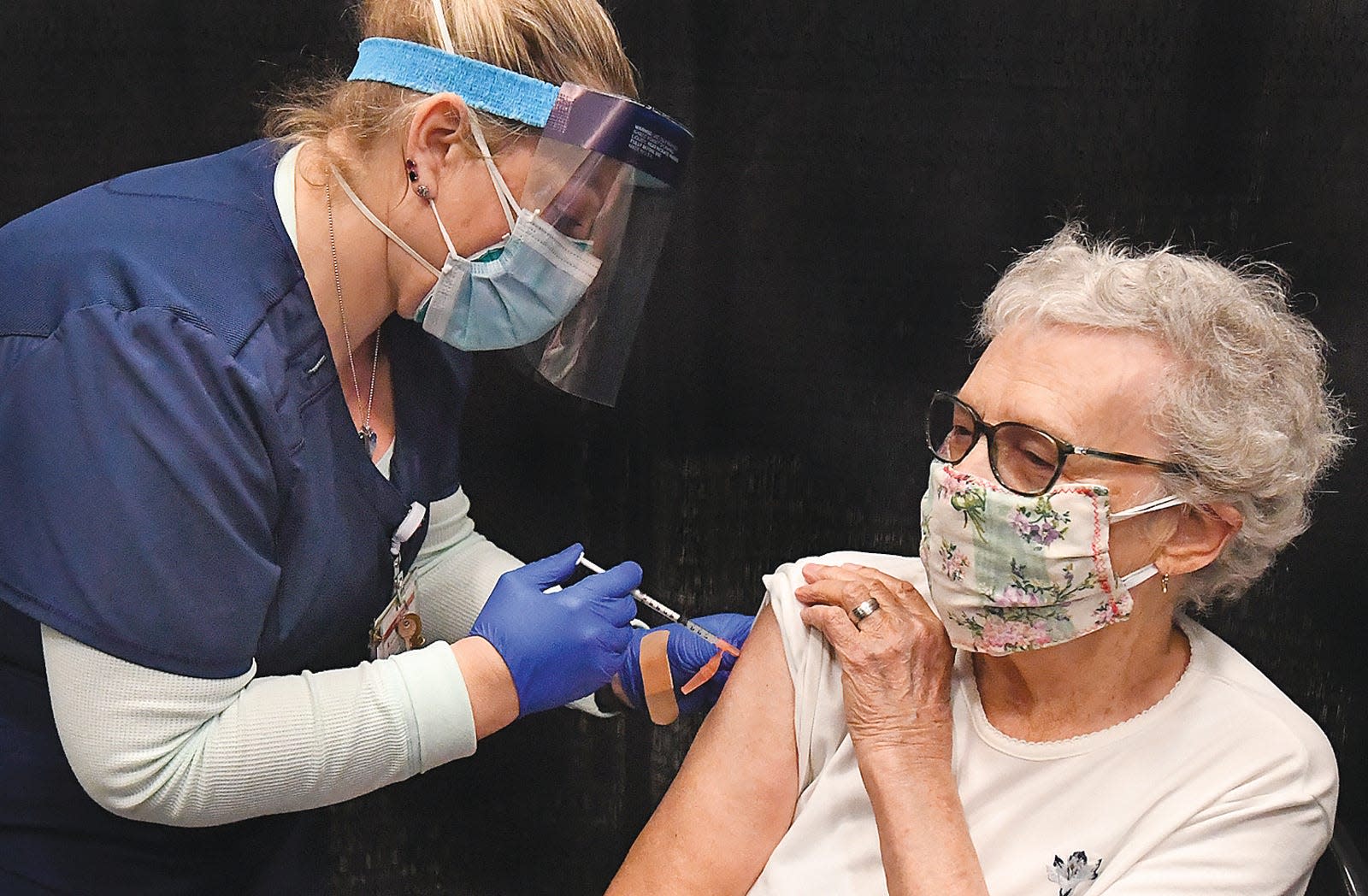New cases of coronavirus are declining in the United States after the surprising post-holiday spikes last month, but experts say it is too early for the new COVID-19 vaccines to have an impact.
The positive trend is also unlikely to continue, as new and more communicable variants threaten to reverse it, according to the director of the Center for Disease Control and Prevention, Dr. Rochelle Walensky.
“Although we have seen declines in cases and hospitalizations and a recent deceleration in deaths, the cases remain extraordinarily high, still twice as high as the maximum number of cases during the summer,” she said this week.
The decline in cases is likely due to a natural depression after record travels followed by domestic holidays triggered an increase in infections, said Dr. Sarita Shah, associate professor at the Rollins School of Public Health at Emory University.
According to the Transportation Security Administration, the agency tracked 1.9 million travelers a day before Christmas Eve, setting a pandemic record.
“We’ve seen some ups and downs in COVID case counts a few times and they seem to really follow people’s holidays or movements,” said Shah.
COVID-19 symptoms take two to 14 days to appear after exposure, and cases peaked exactly two weeks after the Christmas break, noted Brittany Baker, graduate program coordinator and clinical assistant professor at Central University North Caroline.
Related: 400,000 Americans now dead from COVID-19
During that peak, the US began to report more than 200,000 new cases per day. Baker said Americans may have been afraid to take more precautionary measures against COVID-19, which could have contributed to the current decline.
“When we start reading to the general public that the numbers are increasing, we have a feeling of retreat,” she said.
Dr. Wafaa El-Sadr, professor of epidemiology and medicine at Columbia University’s Mailman School of Public Health, said the drop in the number of cases cannot be attributed to the COVID-19 vaccine, as not a tenth of the US population was vaccinated, according to the CDC.
And it is unclear when the vaccine launch, which began in December, will begin to show a drop in the number of cases.
Experts say the forecast continues to change as more drug manufacturers, like Johnson & Johnson, seek emergency authorization from the Food and Drug Administration, the Biden administration tries to secure more doses of Pfizer-BioNTech and Moderna, and states increase eligibility of the vaccine quickly implementation.
“We are vaccinating our most vulnerable populations now, but once we start moving to the broader population, the population that is driving the numbers … that’s when we will start to see an impact on the overall numbers,” said Shah.
Another vaccine on the horizon?: Johnson & Johnson requests FDA authorization for its single-dose COVID-19 vaccine
No cuts, please: Some people get COVID-19 vaccines before their turn comes
She said that Americans may begin to see the vaccine’s impact on the number of cases as early as the summer, but it will be more evident in the fall.
Health experts also need to learn more about how the vaccine prevents the spread of COVID-19 before knowing how it will affect future case numbers, said El-Sadr.
Dr. Anthony Fauci, the country’s leading infectious disease specialist, said at a CNN prefecture last week that evolving evidence shows that it can prevent asymptomatic transmission, but there is no definitive evidence yet. It may be possible for someone to be exposed, to have no symptoms and still have enough virus in the nasal pharynx to infect another person.
Protecting against people who have no symptoms is vital, as a CDC study in early January found that asymptomatic cases account for more than half of all transmission, added El-Sadr.
“We want to make a difference in preventing asymptomatic infection,” she said. “We want to protect people from disease to control the epidemic.”
Follow Adrianna Rodriguez on Twitter: @AdriannaUSAT.
USA TODAY’s health and patient safety coverage is made possible in part by a grant from the Masimo Foundation for Ethics, Innovation and Competition in Health. The Masimo Foundation does not provide editorial contributions.
This article was originally published in USA TODAY: COVID cases in the U.S. are falling, but it’s not vaccine yet, experts say
